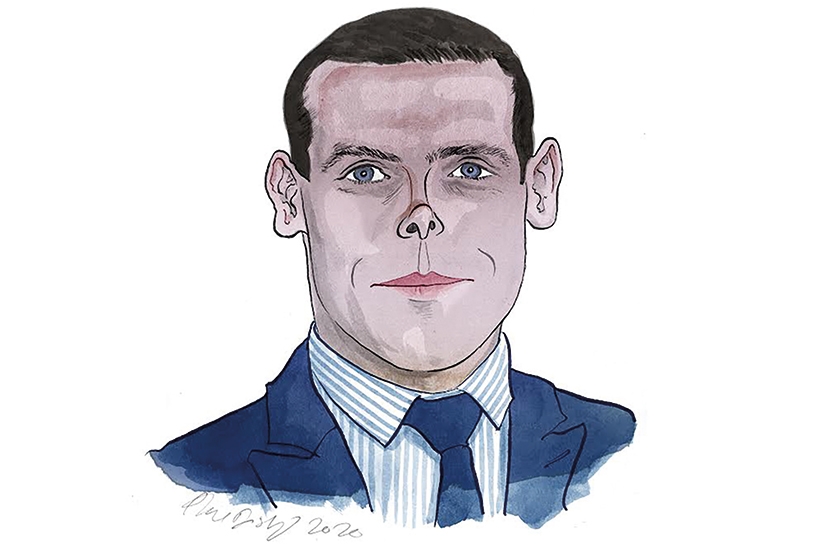It’s not uncommon for Conservative politicians to complain privately that Nicola Sturgeon has proven herself to be a better communicator than Boris Johnson during the pandemic. However, it is unusual for a Tory to say so publicly. This is what Douglas Ross did this week in an interview for ITV News. On top of saying that ‘most objective people’ would say the First Minister is a more ‘effective communicator’ than the Prime Minister, Ross suggested that Johnson – who has negative approval ratings – might not be such an asset when it comes to making the case for Scotland staying in the UK:
‘We can’t say that the people of Scotland are absolutely wrong with their ratings on their various leaders so we’ve got to reflect on that and the Prime Minister reflects on it.’
Usually such comments would be followed by a politician backtracking or attempting to provide ‘context’ to calm down tensions within the party. However, in Ross’s case expect no retraction. Ross has shown previously that he doesn’t mind risking the wrath of 10 Downing Street. He was the only minister to resign over the Dominic Cummings’ Barnard Castle row.
Since becoming leader of the Scottish Conservatives, the MP for Moray has been keen to further prove that he is independent to the Westminster government. He used his first Tory conference speech to accuse ‘some who govern our country’ of wanting to see a UK government focused on England:
‘We pretend these are the views of only a small minority, but I hear them far too often. “If you think Scotland’s place in the UK isn’t worth the fight, then you’re in the wrong party’.
He also voted against the government on a Lords amendment aimed at protecting food standards on the Agriculture Bill.
In some quarters this has been read as a carefully choreographed act to deal with Johnson’s toxicity in Scotland. With support for the SNP surging north of the border, Johnson’s approval ratings struggling and IndyRef2 polls making depressing reading for unionists, supporters of Ross certainly hold the view that it is advantageous for him to distance himself from Johnson’s government. They (in part) credit former Scottish Conservative leader Ruth Davidson’s success in the role with the fact she came across as her own person.
However, it is not the case that Downing Street enjoys this approach. There are senior government figures who make the point that it’s important to have a unified approach ahead of the next general election and a consistent message. But with the Scottish parliament elections taking place next year, for Ross and his supporters there is a more pressing vote to think about. And for that, distance is an asset.







Comments